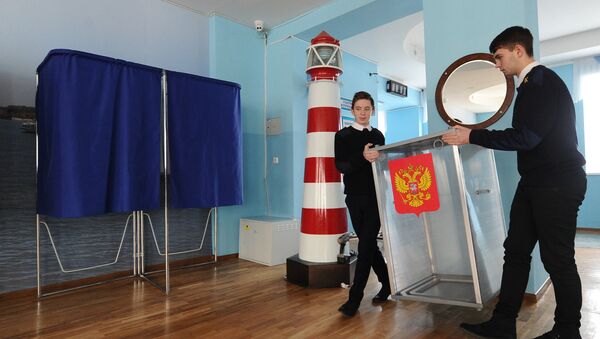The pre-election day of silence in Russia started at midnight on March 17 with internet agitation stopping even earlier, on March 16 at 3 p.m. Moscow time, since this day starts earlier in the eastern regions of the country. During this day all campaigning for the presidential candidates must be suspended. This allows voters to make their final decision "in silence" and not be distracted by political ads.
READ MORE: Russian Military at the Hmeymim Air Base Vote Early in Presidential Elections
However, all previously installed billboards and printouts on stationary objects are allowed in the event they are no closer than 50 meters from the entrance to the polling station. They must contain data on those who ordered the campaign materials and data on the printing office. Printouts can't be left on automobiles or other non-stationary objects even outside the 50-meter ban zone.
All the candidates had a 3-month period, when they had the opportunity to wage electoral campaigns, with the last 28 days being the most heated, when the presidential candidates received their free airtime on federal channels and radio. Each of the presidential contenders received more than 60 hours of free time on federal TV channels and 36 hours on the radio.
READ MORE: Russian Embassy in Damascus Opens Polling Place for 2018 Presidential Election
The presidential elections in Russia will start on March 18. Eight candidates are vying for the presidency this year: Sergey Baburin from the All-People's Union party, Pavel Grudinin from the Communist Party of the Russian Federation, incumbent President Vladimir Putin, Civil Initiative party candidate Ksenia Sobchak, Communists of Russia party Chairman Maxim Suraykin, Presidential Commissioner for Entrepreneurs' Rights and businessman Boris Titov, co-founder of the Yabloko party Grigory Yavlinsky and head of the Liberal Democratic Party of Russia Vladimir Zhirinovsky.

